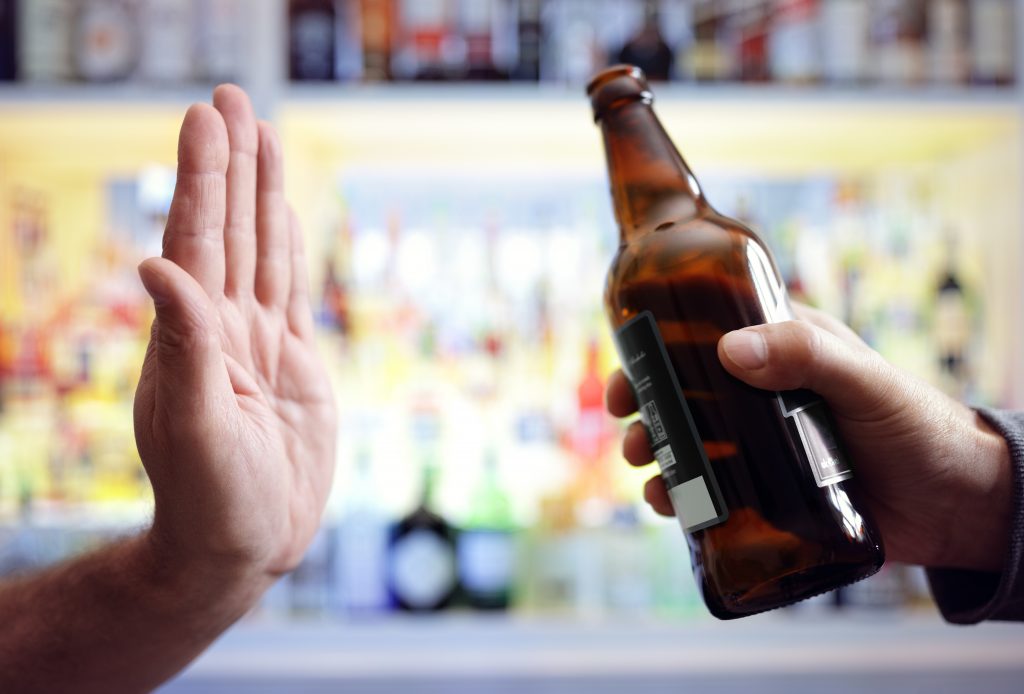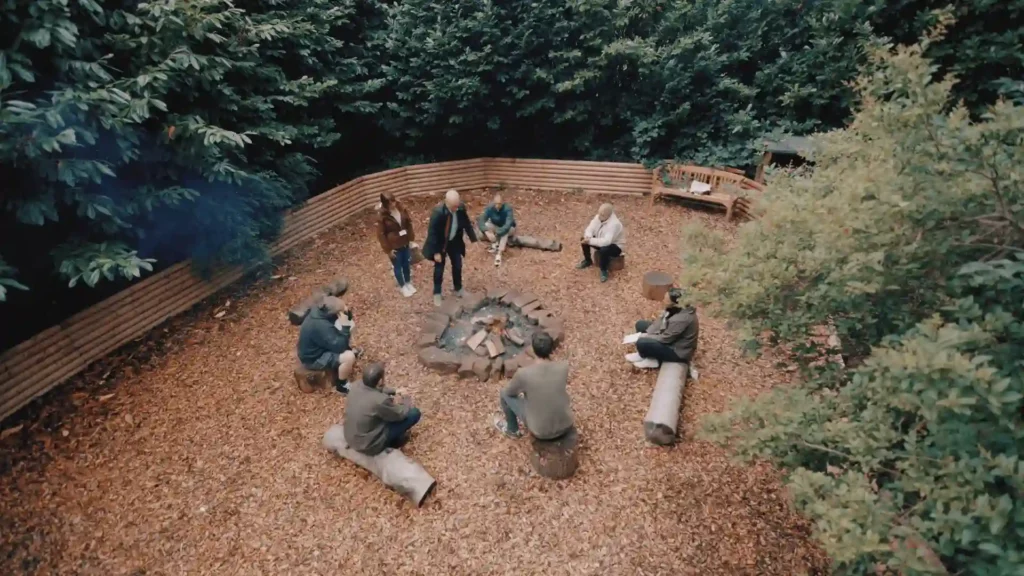What’s included?
- Introduction
- Recognising the signs and symptoms of addiction
- Understanding different types of addiction
- Assessing when professional help is necessary
- Effective communication strategies
- Discussing rehab options with loved ones
- Conducting interventions
- Setting healthy boundaries
- Understanding the admissions process
- Benefits of treatment services
- Supporting resistant individuals
- Strategies for devising a plan
- Delamere private rehab treatment
Addiction is a complex and often devastating issue that affects not just individuals, but their loved ones as well. Recognising the signs of addiction can be the first crucial step in providing help to someone who is struggling with substance use or behavioural issues. Understanding the multifaceted nature of addiction—from drugs and alcohol to behavioural compulsions—sets a foundation for offering the right support.
Many individuals reach a point where they need professional help to confront their addictions, but initiating this process can be daunting for both the person in need and their supporters. The importance of effective communication emerges as a vital tool in discussing rehabilitation options, conducting interventions, and setting boundaries that foster a healthier environment. Knowing how to approach the subject can make a significant difference in someone’s journey toward recovery.
This article will explore the essential aspects of helping someone enter rehab, focusing on the signs of addiction, understanding treatment options, and navigating the admissions process. Additionally, we will outline strategies for supporting those who may be resistant to seeking help, ensuring that their path to recovery is as constructive as possible.
Recognising the signs and symptoms of addiction
Recognising the signs and symptoms of addiction is crucial for identifying when someone may need help. Whether it is an alcohol addiction, drug addiction, or any substance use disorder, certain behavioural and physical indicators can signal a problem.
Key signs of addiction include the inability to stop using addictive substances despite negative effects, increased tolerance and withdrawal symptoms, and neglecting responsibilities. Mental health issues often coexist with substance misuse, further complicating the situation.
As addictive behaviours start impacting a person’s life, changes in their social circles, secretive behaviour, and financial troubles may become evident. Physical signs can vary but generally involve changes in appearance, sleep patterns, and health concerns that can suggest a substance abuse problem or mental health disorder.
Here’s a list of some common signs and symptoms of addiction:
- Sudden changes in behaviour
- Loss of interest in activities once enjoyed
- Neglecting responsibilities at work or home
- Experiencing withdrawal symptoms
- Risk-taking behaviour to obtain substances
- Changes in appetite or sleep patterns
- Financial issues due to spending money on substances
Early identification of these signs can lead to a proactive approach in guiding someone to the appropriate addiction treatment, improving the odds for a successful recovery journey.

Call us confidentially at any time to speak to a member of our team.
Call us now: 0330 111 2015
Understanding different types of addiction
Addiction is a complex and multifaceted condition encompassing a range of substances and behaviours that can create a compulsive pursuit of reward or relief. Addiction can manifest in the form of substance use disorders, including both alcohol and drug addiction, as well as Behavioural addictions that do not involve substance abuse. Understanding the differences between these types can help tailor approaches to addiction treatment and recovery. Substance use disorders involve the dependence on drugs or alcohol, leading to significant impairment or distress. Behavioural addictions, while not involving chemical substances, can similarly interfere with an individual’s life by creating a pattern of dependency on certain activities.
Drug addiction
Drug addiction is characterised by an overwhelming desire to use and obtain drugs despite the adverse consequences. Addiction to drugs can include both illegal substances like heroin or cocaine and prescription medications when used outside of their intended medical supervision. Common features of drug addiction are the development of tolerance, the experience of withdrawal symptoms without the drug, and a persistent desire to use the substance. A drug detox, generally under medical supervision, is often the first step in a comprehensive treatment programme for individuals dealing with drug addiction.

Alcohol addiction
Alcohol addiction, also known as alcoholism, is a type of substance use disorder that involves a preoccupation with alcohol consumption and an inability to control drinking habits. Individuals with alcohol addiction may drink to the point of experiencing health problems, strained relationships, and neglect of personal and professional responsibilities. Treatment for alcohol addiction often includes a stay at specialised alcohol rehabs or Residential rehab facilities, where the individual can receive support from addiction specialists and medical professionals in a structured environment. Alcohol rehabs offer a wide range of services, from Medical detox to individual therapy and group support.
Behavioural addictions
Behavioural addictions, also known as process addictions, refer to compulsions to engage in activities such as gambling, sex, eating, or internet use. They often involve a lack of willpower to resist engaging in the behaviour, despite knowing the negative impact it can have on one’s life. These addictions are characterised by the repeated engagement in the behaviour in response to emotional stress or as a way of coping. Unlike substance addictions, Behavioural addictions do not include the consumption of addictive substances but involve a similar pattern of compulsive actions and may co-occur with other mental health disorders. Treatment often includes therapy with an addiction specialist to work through the roots of the addiction and develop healthier coping mechanisms.
By recognising the distinctions between drug addiction, alcohol addiction, and Behavioural addictions, it is possible to hone in on the specific needs of an individual to provide the most effective care on their recovery journey.
Assessing when professional help is necessary
Assessing When Professional Help Is Necessary
Recognising the need for professional help is a critical step in addressing addiction issues, whether it be to alcohol, drugs, or behavioural addictions. Key indicators that signal the necessity for professional intervention include:
- Persistent use of addictive substances despite the harm caused.
- Withdrawal symptoms when attempting to quit substance use.
- Significant time spent obtaining, using, or recovering from the effects of drugs or alcohol.
- Failed attempts to cut down or control addiction.
- Neglect of important social, occupational, or recreational activities.
- Ongoing substance misuse despite awareness of recurrent physical or psychological problems.
- Development of tolerance, requiring more of the substance to achieve the desired effect.
When these signs are evident, contacting an addiction specialist or an admissions team at a treatment facility is warranted. Addiction is recognised as a mental health disorder, and those struggling might require a treatment programme under medical supervision at a rehab facility to begin their recovery journey. American Addiction Centers and other reputable institutions provide a wide range of addiction treatment options, including medical detox, residential rehab, and various therapeutic approaches tailored to individual needs.
Effective communication strategies
Initiating a conversation about rehab can be challenging. Effective communication strategies are key in creating an open, supportive environment that encourages understanding and action. Here are some approaches:
- Active Listening: Give full attention to the person, showing genuine interest in their feelings and experiences. Avoid interrupting or jumping to conclusions.
- Empathy: Try to understand the situation from their perspective, acknowledging the difficulty of their struggle without judgment.
- Honesty: Speak truthfully about your concerns regarding their substance misuse, but refrain from sounding critical.
- Language Sensitivity: Use “I” statements to convey your thoughts and feelings, instead of “you” statements, which can feel accusatory.
- Patience: Recognise that acceptance of help for a substance use disorder might not happen immediately, and be prepared to have several conversations if needed.
These strategies form the basis for effective interventions and productive discussions surrounding addiction treatment.
Discussing rehab options with loved ones
When introducing the subject of a treatment programme to a loved one, there are fact-based tactics to follow:
- Research in Advance: Equip yourself with information on the addiction issue and potential solutions, including details about various rehab programmes.
- Calm Setting: Choose a quiet, private space for the conversation that is void of distractions.
- Educate: Provide your loved one with insights into how rehab can specifically address their needs, be it alcohol addiction, drug addiction, or a mental health disorder.
- Support: Emphasise that your aim is to support them on their recovery journey, and ensure they know you are not blaming them for their condition.
Clear communication regarding the array of facilities (Residential rehab or outpatient), specialty treatments for drug detox or behavioural addictions, and resources provided by medical professionals can empower individuals with knowledge and pave the way for the next step.

Call us confidentially at any time to speak to a member of our team.
Call us now: 0330 111 2015
Conducting interventions
A formal intervention can be a pivotal moment for someone in the grip of addiction. Here are essential factors to consider for conducting an intervention:
- Planning: Engage an addiction specialist or interventionist to guide the process.
- Team Selection: Assemble a group of close friends and family who are supportive and understand the mental health issues associated with addiction.
- Scripting: Each member should prepare what they want to say, focusing on how the drug abuse has impacted their relationship and their hopes for the person’s future.
- Ultimatums: If appropriate, be ready to set boundaries and follow through on any consequences if the person refuses treatment.
A well-conducted intervention can be a lifeline for those caught in substance misuse, leading them to accept help from a rehab facility.
Setting healthy boundaries
Boundaries are crucial for the well-being of both the individual struggling with addiction and their loved ones. Guidelines for establishing healthy boundaries include:
- Clarity: Be clear about what behaviour is unacceptable and the consequences if they continue.
- Consistency: Stand firm and maintain the established boundaries to avoid sending mixed signals.
- Self-Care: Attend to your own mental health and seek support if the emotional toll becomes too heavy.
- Detachment with Love: Release yourself from feeling responsible for their actions while expressing care and concern for their well-being.
- Professional Guidance: Consult with professionals to ensure that the boundaries you set are constructive and promote the individual’s journey towards recovery.
Having strong boundaries doesn’t reflect a lack of willpower or care; rather, it sets the stage for accountability and lasting change.
Discussing rehab options with loved ones
Helping someone acknowledge the need for rehab can be challenging. Start by having an honest conversation with your loved one. Approach them with care and concern rather than judgment. Misuse of alcohol, drugs, or addictive substances is often tied to deeper mental health issues.
Outline the benefits of addiction treatment programs, emphasising that substance use disorders, including alcohol and drug addiction, often require professional intervention. Emphasise that a rehab facility offers medical supervision, which is especially crucial during the delicate detox period.
Research rehab options together. Look for accredited facilities like American Addiction Centers that have a competent admissions team, trained addiction specialists, and personalised treatment programs. A wide range of programs is available, such as:
- Residential rehab for intensive care.
- Outpatient programs for those with less severe addiction or time constraints.
- Specialised programs for behavioural addictions or dual diagnosis with mental health disorders.
Ensure they understand addiction is not a lack of willpower but a medical condition that needs a structured recovery journey. Lastly, provide reassurance that you’ll support them through the process of entering a rehab program and beyond.
| Type of Rehab | Description |
|---|---|
| Residential | 24/7 care within a treatment facility. |
| Outpatient | Treatment programs with living at home. |
| Specialised | Addressing specific addictions or co-occurring mental health disorders. |
Conducting interventions
Interventions are structured conversations between someone dealing with addiction and their loved ones, guided by an addiction specialist. The goal is to encourage the individual to seek help from a treatment facility.
Key Steps in Conducting Interventions:
- Planning: A group of friends and family, often with an intervention specialist, organise the intervention, considering strategies and potential outcomes.
- Gathering Information: Participants learn about the severity of the person’s addiction and the associated behaviours, researching rehab facilities that might be suitable.
- Formulating an Impact Statement: Each member prepares to express the emotional and practical effects of the individual’s substance misuse.
- Choosing a Rehab Programme: Before the intervention, a spot in a recovery programme must be secured with the admissions team to ensure immediate action can be taken.
- Setting the Scene: The intervention should occur in a familiar, private setting, with minimal distractions.
- Conducting the Intervention: Participants take turns sharing their concerns and impact statements calmly and honestly. The group offers prearranged treatment options, outlining the consequences if the person refuses help.
- Follow-Up: Post-intervention, it is crucial to continue support, whether the individual enters a rehab programme or not.
Setting healthy boundaries
Setting healthy boundaries is a crucial aspect of maintaining balanced relationships and preserving personal well-being. To establish these boundaries, one must:
- Identify Limitations: Recognise personal limits in various contexts, such as physical, emotional, mental, and spiritual.
- Communicate Clearly: Express limits directly and respectfully to ensure others understand your boundaries.
- Practice Assertion: Stand firm on your boundaries, even when tested, without being aggressive.
- Self-Respect: Understand that setting boundaries is a sign of self-respect, not selfishness.
- Seek Support: If asserting boundaries proves difficult, seek guidance from trusted individuals or professionals.
| Steps to Setting Boundaries | Description |
|---|---|
| Identify Personal Limits | Understand your own limits and comfort zones. |
| Clear Communication | Express your boundaries to others clearly. |
| Stay Firm | Maintain your boundaries despite pressure. |
| Self-Respect | View your boundaries as a form of self-care. |
| Support Networks | Reach out for help when needed. |
Through these methods, individuals can protect their mental health and encourage respectful interactions. Remember, it’s okay to prioritise your own needs and seek assistance in cultivating healthy boundaries.

Understanding the admissions process
Seeking help for an addiction issue, whether it is related to alcohol addiction, substance use disorders, or behavioural addictions, often starts with recognising the grip of addiction and deciding to enter a treatment facility. Understanding the admissions process to a rehab facility can alleviate some of the anxiety that accompanies this critical step on the recovery journey.
At the core of the admissions process is an evaluation conducted by medical professionals or an admissions team at the treatment facility. This assessment includes a review of the individual’s medical history, mental health disorders, and the nature and extent of their addiction to substances or addictive behaviours. This comprehensive evaluation is designed to ensure the appropriate level of care, such as elucidating whether the individual requires medical detox or can begin with a standard rehab programme.
Once there is an agreement between the individual and the addiction specialists on the need for treatment, insurance coverage and payment options are reviewed. Many treatment facilities, including American Addiction Centers, provide assistance to help navigate the financial aspects of addiction treatment.
| Steps in the Admissions Process | Description |
|---|---|
| Initial Contact | Reach out to a treatment facility for information and assistance. |
| Comprehensive Evaluation | Undergo an assessment to determine the appropriate treatment programme. |
| Financial Arrangements | Discuss insurance coverage and payment options. |
| Pre-Admission Requirements | Complete any necessary paperwork and medical tests. |
| Admission | Officially enter the treatment facility to start the program. |
It is essential to engage in an honest conversation with the treatment facility’s admissions team during this process. Openness will lead to a better-suited treatment programme, increasing the chances of a successful recovery.
Inpatient rehab admissions
Inpatient rehab admissions involve a more intensive treatment structure, often recommended for individuals with severe addiction issues or those suffering from a concurrent mental health issue. Inpatient facilities, such as residential rehab centers, provide around-the-clock care under medical supervision, which is essential for those experiencing severe withdrawal symptoms during drug detox.
The process of inpatient rehab admissions typically involves the following steps:
- Pre-Admission Assessment: A comprehensive assessment to establish the severity of the addiction and any co-occurring mental health disorders.
- Medical Evaluation: Medical professionals will evaluate the need for a medical detox to address withdrawal symptoms safely.
- Packing and Preparations: The individual will be given instructions on what personal items to bring that comply with the rehab facility’s guidelines.
- Admissions Day: Arrival at the facility, where the individual will meet the staff, receive a tour, and settle into the environment where they will start their treatment.
- Treatment Planning: Development of a personalised treatment plan, often involving a multi-disciplinary team, which may include behavioural therapy, counseling, support groups, and medical treatment if necessary.
Keep in mind that rehab programs offer a wide range of services tailored to individual needs, and the length of stay in residential rehab can vary based on the specific circumstances and progress of the person receiving treatment. The admissions process is the first step in a profound transformation towards a life free from the control of addictive substances or behaviours.
Benefits of treatment services
Supporting a loved one through the process of entering rehabilitation for drug addiction, alcohol addiction, or other substance use disorders can be a pivotal step in their recovery journey. Here are some benefits of treatment services that rehab facilities offer:
- Medical Supervision: Rehab programmes provide medical detox and supervision to ensure the safety of individuals withdrawing from addictive substances.
- Comprehensive Care: Treatment for both the physical symptoms of substance misuse and any co-occurring mental health disorders are provided.
- Structured Environment: Residential rehab facilities offer a stable environment, free from temptations, allowing individuals to focus solely on recovery.
- Counseling and Support: Addiction specialists and mental health professionals work with individuals in both one-on-one and group settings.
- Long-Term Strategies: Treatment facilities educate on relapse prevention and offer tools to manage triggers post-rehab.
- Peer Support: Rehab creates an opportunity for clients to meet others on similar recovery paths, fostering a community of support.
- Customised Treatment Plans: Addiction treatment is tailored to individual needs, ensuring a more effective approach to recovery.
The American Addiction Centers emphasise the importance of a robust support system and a thorough treatment programme in transcending the grip of addiction. With the right treatment services, individuals gain a renewed sense of control and hope for their future.
Supporting resistant individuals
Convincing someone struggling with addiction to seek help can be challenging, especially when they are resistant or in denial about their situation. This resistance may stem from a fear of change, embarrassment, or a perceived lack of willpower to overcome their affliction. It’s important to approach this situation with empathy, understanding, and persistence. Moreover, it is helpful to become knowledgeable about addiction issues and the treatment process, which can involve speaking with professionals such as addiction specialists or the admissions team at a rehab facility. Highlighting the benefits of the treatment and the negative impacts of continuing a life dominated by substance misuse can sometimes influence a resistant individual’s decision to seek help.
Encouraging open discussions about recovery
Honest conversation is key in managing resistance to the idea of rehab. These discussions should be non-judgmental and aimed at expressing concern rather than blame. Finding the right time to talk is also crucial – it should be a moment when the person is sober and least defensive. During the conversation, actively listen to their fears and concerns, and validate their feelings without enabling their behaviour. Throughout, you can gently introduce them to the idea of how a rehab programme might benefit them and share success stories that can in-still hope.
Building a support network
A solid support network is a cornerstone for anyone embarking on their recovery journey. This network should include friends, family members, medical professionals, and individuals who have successfully walked the path of recovery. Support groups and meetings by organisations addressing behavioural addictions and substance abuse offer communal strength and wisdom that can inspire change. The reinforcement from a wide range, and community of support can provide additional motivation for an individual dealing with a mental health disorder or addiction issue to consider rehabilitation as a viable and necessary option.
Strategies for devising a plan
Once an individual is open to the possibility of rehab, devising a clear and supportive plan for entry into a treatment facility is crucial. This includes researching potential rehabs, understanding what their treatment programme entails, and preparing for any barriers to treatment, such as financial concerns or work commitments. It’s vital to work alongside the individual, empowering them to be part of the decision-making process. Consider creating a table outlining various facilities, their services, and pertinent admission information to aid in comparing and selecting the appropriate rehab facility. Preparing a plan with concrete steps, such as when to tour facilities, how to handle a medical detox if required, and setting a date for admission, can provide clarity and structure amidst the uncertainty that often surrounds the beginning of a recovery journey.
Encouraging open discussions about recovery
Encouraging open discussions about recovery is crucial in assisting individuals struggling with substance misuse or a mental health disorder. It starts with creating a supportive environment where honest conversation can take place. Here, concerns can be openly addressed, and feelings expressed without judgment.
- Be Supportive: Be a comforting presence, offering understanding rather than criticism.
- Listen Actively: Demonstrates empathy and that you value their feelings and experiences.
- Avoid Blame: Focus on behaviours and effects, not assigning fault, to prevent defensive responses.
- Provide Information: Share knowledge about addiction issues and the recovery journey.
- Discuss Treatment Options: Talk about different types of addiction treatment, including medical detox, drug treatment with medical professionals, therapy, and participation in a rehab programme.
- Highlight Successes: Emphasise the positive outcomes and personal growth that can come from committing to a treatment facility.
Open discussions can reduce feelings of isolation and help to break the grip of addiction. By encouraging this dialogue, you can help your loved one make informed decisions and take the first steps towards a rehab facility and recovery.
Building a support network
Understanding and addressing alcohol addiction, drug addiction, or any kind of substance use disorders requires a robust support network. This network is critical for those on their recovery journey or considering a rehab programme.
A support network typically includes:
- Medical professionals to provide medical supervision, perhaps for a drug detox or to manage a mental health issue that co-occurs with substance misuse.
- Addiction specialists who understand the nuances of addiction treatment and can guide towards the right treatment facility.
- Family and Friends who offer emotional support and encouragement.
- Rehab facility staff, including the admissions team, at residential rehab settings that are trained to handle a wide range of substance dependencies and behavioural addictions.
- Support groups made up of peers also working through their own recovery journey.
- Therapists or counsellors for ongoing mental health support and to address underlying mental health disorders.
This network not only helps individuals get the grip of addiction under control but also assists in manoeuvring through the challenges of reintegration post-treatment. Organisations like the American Addiction Centers can serve as a resource to connect those struggling with addiction issues to appropriate support networks.
| Strategy | Description |
|---|---|
| Set Clear Objectives | Define specific goals |
| Gather Information | Collect data related to the plans |
| Analyse the Situation | Understand the context and challenges |
| Brainstorm Options | Create a list of potential strategies |
| Develop a Course of Action | Arrange strategies into an actionable plan |
| Align Resources | Secure needed resources |
| Assign Responsibilities | Define who does what |
| Set a Timeline | Outline when tasks should be completed |
| Monitor Progress | Track the implementation of the plan |
| Review and Reflect | Assess the effectiveness post-completion |
Remember to revisit and revise your plan as circumstances change to ensure continued relevance and effectiveness.
Delamere private rehab treatment
Delamere is a private rehab treatment facility that offers a sanctuary for individuals grappling with alcohol addiction, drug addiction, and various other substance use disorders. The establishment recognises the intricate nature of addiction and provides a comprehensive treatment programme tailored to each individual’s needs.

With a compassionate admissions team and seasoned addiction specialists, Delamere provides a distinctive approach to overcoming the grip of addiction. Their focus extends to addressing mental health issues that often co-occur with substance misuse.
Key Attributes:
- Residential rehab offering privacy and comfort
- Bespoke treatment programmes
- Mental health disorder support
- Expert medical supervision for detox processes
- Holistic recovery journey emphasis
Services Include:
- Alcohol detox, ensuring safety and comfort
- Drug treatment under compassionate medical professionals
- Rehabilitation for behavioural addictions
- Ongoing support post-rehab
Admission to Delamere marks the start of a recovery journey, supported by skilled staff in a serene environment optimal for healing and personal growth. Their objective is to assist individuals in not just breaking free from addictive substances but also in understanding and managing their mental health to prevent relapse and foster long-term recovery.

Call us confidentially at any time to speak to a member of our team.
Call us now: 0330 111 2015








